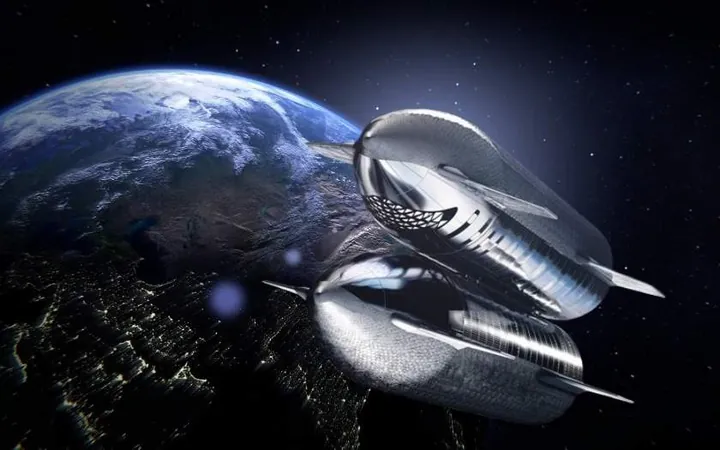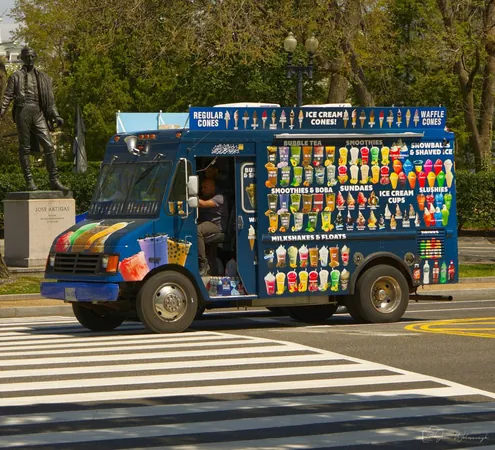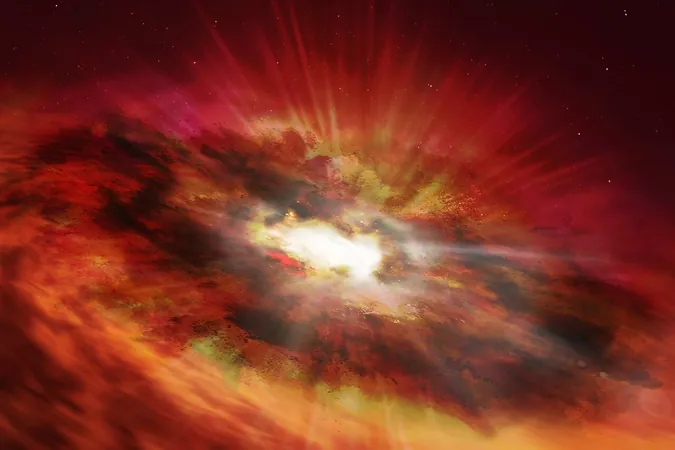
Is Humanity Ready for Life on the Moon and Mars?
2025-06-04
Author: Noah
The Challenges Awaiting Astronauts in Space
Our bodies simply weren't built for the harshness of space. As we gear up for human missions to the Moon and Mars, understanding how factors like radiation, microgravity, and extreme temperatures impact our health is crucial.
The Dangers of Radiation
Radiation exposure poses significant risks, potentially leading to DNA mutations, cataracts, and even cancer. A shocking statistic from the European Space Agency reveals that just one day in space could expose a Mars-bound crew member to the same amount of radiation that we’d encounter on Earth in an entire year. That’s a staggering concern for long-duration missions.
The Toll of Weightlessness
Microgravity isn’t just disorienting; it also takes a physical toll. Astronauts on extended missions can lose about 1% of their bone density each month, heightening the risk of fractures. Furthermore, fluid shifts in low gravity can lead to impaired vision and even complications in kidney function.
Navigating Medical Care in Space
When it comes to providing medical assistance in space, timely communication is critical. During a journey to Mars, a message can take up to 20 minutes to travel back to Earth, a delay that could be catastrophic in emergencies like heart attacks. To tackle this, scientists are innovating AI-driven systems that can analyze symptoms and provide immediate recommendations—perfect for conditions far from Earth.
Medication Challenges
Space missions bring their own set of challenges regarding medication. On the International Space Station (ISS), astronauts usually take about four different medications each week—from pain relief to sleep aids. However, many medicines have a shelf life under three years, which is problematic for the extended duration of a Mars mission; up to 98% of medical supplies may spoil before the crew’s return. Plus, environmental factors like radiation and temperature can alter drug effectiveness, with astronauts often needing repeat doses due to these unpredictable changes.
The Psychological Strain of Isolation
Psychological well-being is another crucial aspect to consider. Isolation, a lack of social interaction, equipment noise, and constant stress can severely impact mental health. To combat these issues, solutions such as circadian rhythm-regulating lighting systems and virtual reality for stress management are being developed and tested in Earth-bound 'analog' missions before being deployed during lunar orbit expeditions.
Feeding Astronauts in Space
Simply transporting food isn’t enough for long missions; think 10 months to get to Mars! The extreme conditions on the Moon and Mars—with unyielding temperatures ranging from +121 to -133°C and high radiation levels—make food sustainability a challenge. To address this, NASA and the Canadian Space Agency launched the Deep Space Food Challenge, aiming to develop autonomous systems for growing fruits and vegetables using minimal resources. Ongoing research is also exploring genetically modified microorganisms to produce essential nutrients in bioreactors.
The Road Ahead
As we stand on the brink of deep space exploration, it’s clear: preparing for life on the Moon and Mars is not just about spacecraft and technology; it’s about ensuring human health and safety in unexplored territories. The journey ahead is complex—but we’re rising to the challenge.









 Brasil (PT)
Brasil (PT)
 Canada (EN)
Canada (EN)
 Chile (ES)
Chile (ES)
 Česko (CS)
Česko (CS)
 대한민국 (KO)
대한민국 (KO)
 España (ES)
España (ES)
 France (FR)
France (FR)
 Hong Kong (EN)
Hong Kong (EN)
 Italia (IT)
Italia (IT)
 日本 (JA)
日本 (JA)
 Magyarország (HU)
Magyarország (HU)
 Norge (NO)
Norge (NO)
 Polska (PL)
Polska (PL)
 Schweiz (DE)
Schweiz (DE)
 Singapore (EN)
Singapore (EN)
 Sverige (SV)
Sverige (SV)
 Suomi (FI)
Suomi (FI)
 Türkiye (TR)
Türkiye (TR)
 الإمارات العربية المتحدة (AR)
الإمارات العربية المتحدة (AR)